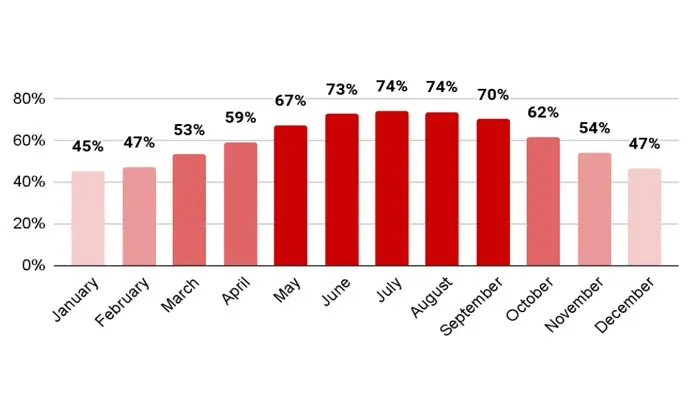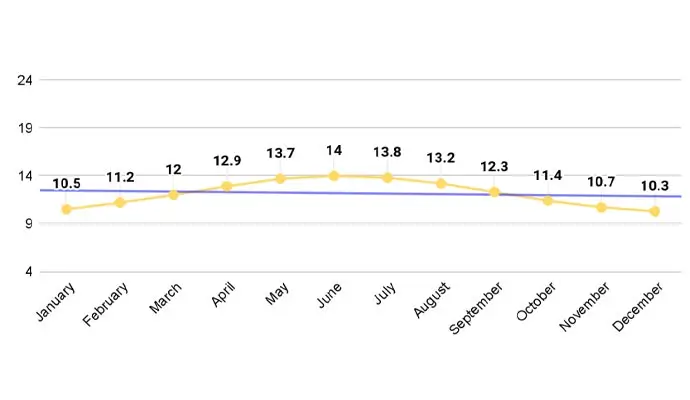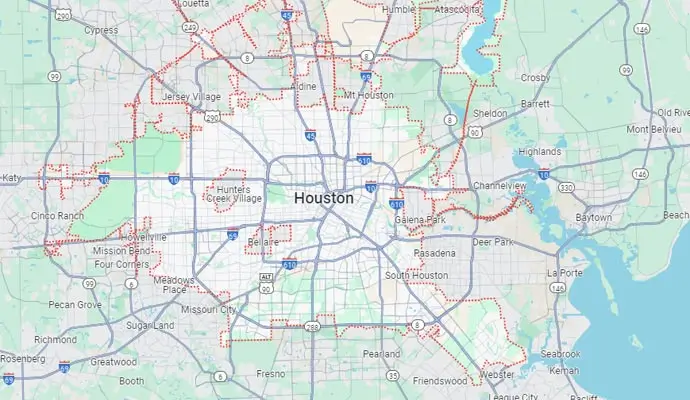Houston City Weather, TX, USA
Houston is one of the most populous in Texas. Houston has a humid subtropical climate with hot humid summers and warm winters. In Houston, temperatures can range from the mid-40s in the winter to the upper 90s in the summer. The city is known for its frequent rain showers year-round, receiving over 50 inches of average annual precipitation. Before you move to Houston, look at how the weather changes in Houston from dawn to dusk.

Weather Highlights
- Highest Temperature of Summer: July 94°F
- Lowest Temperature of Winter: January 41°F
- Average Rain of a Year: 50 inches
- Average Snowfall of a Year: 0 inches
Houston typically experiences around 60 days of thunderstorms annually. The hottest and most humid months are from June to September, but the proximity to the Gulf of Mexico keeps temperatures relatively pleasant year-round.
Explore Properties




